0 comment Tuesday, July 22, 2014 | admin
 It's another "I'm glad it's not me" day here in the great State of Texas. Judge Sharon Keller, presiding judge of the Texas Court of Criminal Appeals, began trial today.
It's another "I'm glad it's not me" day here in the great State of Texas. Judge Sharon Keller, presiding judge of the Texas Court of Criminal Appeals, began trial today.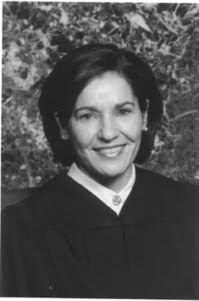 But no black robes for her today; this time she's the defendant. The State Commission on Judicial Conduct alleges her refusal to accept a last-minute motion for a stay of execution "constitutes incompetence in the performance of duties of office."
But no black robes for her today; this time she's the defendant. The State Commission on Judicial Conduct alleges her refusal to accept a last-minute motion for a stay of execution "constitutes incompetence in the performance of duties of office."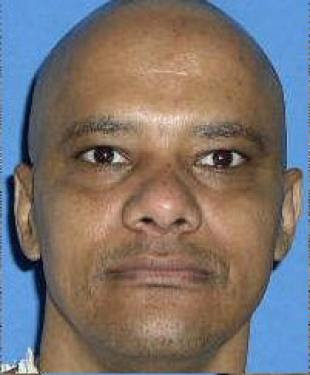 It all started on the day one Michael Richard was scheduled to be executed by lethal injection. But on that same day, the United States Supreme Court agreed to hear a case out of Kentucky, in which the defendant argued lethal injection was cruel and unusual punishment.
It all started on the day one Michael Richard was scheduled to be executed by lethal injection. But on that same day, the United States Supreme Court agreed to hear a case out of Kentucky, in which the defendant argued lethal injection was cruel and unusual punishment. Defense attorneys for Mr. Richard quickly scrambled to get their court papers in order, but ran into computer problems. They called the court clerk to make arrangements to file their papers a few minutes after five p.m. The Court's general counsel then called Judge Keller about accepting a late filing and she declared, "We close at five."
Defense attorneys for Mr. Richard quickly scrambled to get their court papers in order, but ran into computer problems. They called the court clerk to make arrangements to file their papers a few minutes after five p.m. The Court's general counsel then called Judge Keller about accepting a late filing and she declared, "We close at five."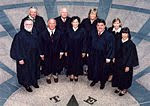 But the Court routinely stayed late on execution days to accept last-minute court filings. And Mr. Richard would not be able to seek a stay in the United States Supreme Court until he'd exhausted all other options. In other words, he couldn't get there from here unless and until the Texas Court of Criminal Appeals first shot him down.
But the Court routinely stayed late on execution days to accept last-minute court filings. And Mr. Richard would not be able to seek a stay in the United States Supreme Court until he'd exhausted all other options. In other words, he couldn't get there from here unless and until the Texas Court of Criminal Appeals first shot him down.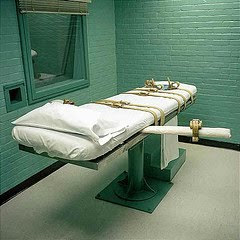 And it's not like Judge Keller had no idea the United States Supreme Court had just agreed to hear a case on lethal injections. The Court's general counsel sent all the judges an email that morning, so advising them.
And it's not like Judge Keller had no idea the United States Supreme Court had just agreed to hear a case on lethal injections. The Court's general counsel sent all the judges an email that morning, so advising them.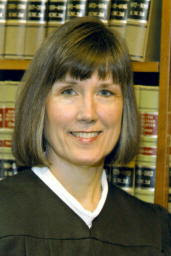 Incredibly, Judge Keller never bothered to tell the "duty" judge assigned the case, Judge Cheryl Johnson, that Mr. Richard's lawyers were attempting to make a last-minute filing. Her unilateral "we close at five" pronouncement was a death pronouncement for Richard. The next morning, when Judge Johnson found out Richard's lawyers had tried to file an appeal, she was steamed.
Incredibly, Judge Keller never bothered to tell the "duty" judge assigned the case, Judge Cheryl Johnson, that Mr. Richard's lawyers were attempting to make a last-minute filing. Her unilateral "we close at five" pronouncement was a death pronouncement for Richard. The next morning, when Judge Johnson found out Richard's lawyers had tried to file an appeal, she was steamed.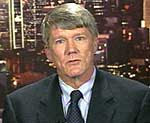 Judge Keller has a lot on the line here, and not surprisingly, recollections are now starting to vary. Just a few days ago, the Court's general counsel testified for the first time in a deposition that he did in fact tell Judge Johnson about the lawyers' request to file their papers after hours. But today, despite fierce cross-examination by Keller's lawyer, Chip Babcock, Judge Johnson vigorously disputed this apparently "new" recollection.
Judge Keller has a lot on the line here, and not surprisingly, recollections are now starting to vary. Just a few days ago, the Court's general counsel testified for the first time in a deposition that he did in fact tell Judge Johnson about the lawyers' request to file their papers after hours. But today, despite fierce cross-examination by Keller's lawyer, Chip Babcock, Judge Johnson vigorously disputed this apparently "new" recollection.Needless to say, Richard's execution and Judge Keller's hard-nosed refusal to accept his appeal have kicked up a media maelstrom. Still, I can't help but wonder if the reactions would have been less vehement were it not for Judge Keller's previous outrages.
 For instance, take Mr. Roy Criner (whom George Bush ultimately pardoned while he was governor of Texas). When Mr. Criner was arrested for sexual assault back in 1986, DNA testing was much more primitive. The DNA results showed only that the semen could have come from Mr. Criner. In other words, it did not exclude him as the perpetrator. From this slender scientific reed, Mr. Criner was convicted.
For instance, take Mr. Roy Criner (whom George Bush ultimately pardoned while he was governor of Texas). When Mr. Criner was arrested for sexual assault back in 1986, DNA testing was much more primitive. The DNA results showed only that the semen could have come from Mr. Criner. In other words, it did not exclude him as the perpetrator. From this slender scientific reed, Mr. Criner was convicted.Finally, after he'd spent years in prison, improved DNA testing squarely established the semen was not his; it could not have come from Mr. Criner.
Nonetheless, Judge Keller refused to grant him a new trial.
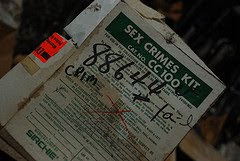 In an interview with Frontline, she said that just because it wasn't Criner's semen didn't mean he didn't rape the girl -- a girl, Keller suggested, who was "promiscuous."
In an interview with Frontline, she said that just because it wasn't Criner's semen didn't mean he didn't rape the girl -- a girl, Keller suggested, who was "promiscuous.""The evidence didn't show that he did not have sex with this woman," she explained on Frontline. "It can't. Just like the absence of fingerprints right here doesn't show that I didn't touch that chair. It can't show that he didn't do that."
 Oh, right. I get it now. Criner must have had a buddy with him who did all the ejaculating. It's the old "unindicted co-ejaculator theory," as Barry Scheck would put it.
Oh, right. I get it now. Criner must have had a buddy with him who did all the ejaculating. It's the old "unindicted co-ejaculator theory," as Barry Scheck would put it.This preposterous, tortured logic prompted the Frontline interviewer to ask Judge Keller, "How can Roy Criner establish his innocence?" "I don't know," she answered.
 Perhaps today Judge Keller will try to establish her own. As a defendant, she'll quickly learn how very hard that can be.
Perhaps today Judge Keller will try to establish her own. As a defendant, she'll quickly learn how very hard that can be.Labels: Random
